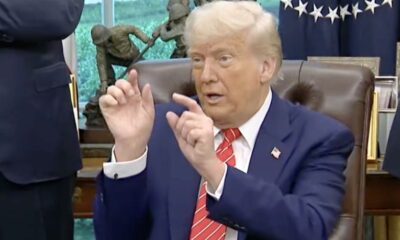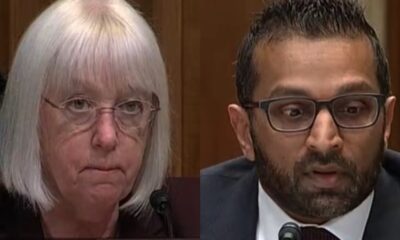Tennessee Pro-Bullying Bill: Exactly Whom Is It Designed To Protect?
What does it mean for LGBT young people if Tennessee’s pro-bullying bill is passed into law? And whom is this legislation really designed to protect? Â U.K. anti-bullying expert and author Ian Rivers weighs in, from across the pond.
I recently read with interest on Twitter about a bill going through the Tennessee House (House Bill 1153) and Senate (Senate Bill 760) which seeks to ensure that First Amendment rights are not curtailed by the the accusation of bullying. The Bill was introduced in the House by Rep. Vance Dennis (R-Savannah) and in the Senate by Senator Jim Tracy (R-Shelbyville), and some on Twitter fear that it will give those who hold certain negative beliefs, attitutudes or convictions about minority groups, particularly sexual minority groups, a license to bully. The Bill describes bullying as “any act that substantially and measurably interferes with a student’s educational benefits, opportunities or performance, that takes place on school grounds, at any school-sponsored activity, on school-provided transportation or at any official school bus stop,” and that has the effect of:
- Physically harming a student or damaging a student’s property;
- Knowingly placing a student in reasonable fear, as determined objectively, of physical harm to the student or damage to the student’s property; or
- Creating a hostile educational environment.
So far so good. However the Bill then goes on the say that creating a hostile educational environment, “shall not be construed to include discomfort and unpleasantness that can accompany the expression of a viewpoint or belief that is unpopular, not shared by other students, or not shared by teachers or school officials.” In other words, if a student, teacher or official has a view and expresses it in terms to students or their peers that are construed as negative, such views should be protected under the First Amendment, particularly if they are founded upon a deep-seated conviction.
The Bill goes on the clarify further (and these clarifications are important) in what circumstances such discomfort or unpleasantness will be allowed:
The policy shall not be construed or interpreted to infringe upon the First Amendment rights of students and shall not prohibit their expression of religious, philosophical, or political views; provided, that such expression does not include a threat of physical harm to a student or damage to a student’s property.
Furthermore:
Harassment, intimidation, or bullying prevention task forces, programs, and other initiatives formed by school districts, including any curriculum adopted for such purposes, shall not include materials or training that explicitly or implicitly promote a political agenda, make the characteristics of the victim the focus rather than the conduct of the person engaged in harassment, intimidation, or bullying, or teach or suggest that certain beliefs or viewpoints are discriminatory when an act or practice based on such belief or viewpoint is not a discriminatory practice as defined in 4-21-102(4).
In the summary provided by the Tennessee General Assembly we are told that 4-21-102(4) relates to human rights law and that a discriminatory practice constitutes, “any direct or indirect act or practice of exclusion, distinction, restriction, segregation, limitation, refusal, denial, or any other act or practice of differentiation or preference in the treatment of a person because of race, creed, color, religion, sex, age or national origin.”
Although sexual orientation is not included, it should also be recalled that Tennessee was also the state that passed the “Don’t Say Gay“Â Bill sponsored by Senator Stacey Campfield and supported by Senator Tracy both in the Senate and in the Education Committee. A redoubtable couple!
So what does this mean for LGBT young people of Tennessee if this bill is passed into law?
The first question we should ask is, can bullying ever be excused because of a religious, philosophical or political view? The answer is clearly, no!
Bullying as defined by the Bill is an action meant to cause physical and/or emotional harm, and cause damage to property. Thus, any action or inaction taken by a school or district that results in a young LGBT person feeling intimidated (by the fear of reprisal) or being harmed in any way may be construed as a violation of the Fourteenth Amendment. Indeed, several school districts and principals have found themselves before the courts for violating the Fourteenth Amendment rights of LGBT students.
In my book, “Homophobic Bullying: Research and Theoretical Perspectives,” I provide examples of some of the cases that have been brought before the courts. For example, in 2004, a school district in California settled out of court (including legal fees of approximately $1.1 million) following a case where a group of students were taunted with sexual slurs and pornography, and, in one case, physically assaulted. The school district claimed that they were immune from legal action because their obligation to protect students from homophobic attacks was unclear. The district’s lawyers also claimed that efforts it made to tackle bullying absolved it of any liability.
The Ninth Circuit Court of Appeals disagreed and determined that inaction by school administrators constituted intentional discrimination. So, be warned principals and superintendents, a religious, philosophical or political view does not absolve you from liability if things get “out-of-hand” in your school or district.
Secondly, it is important to ask the question, does the First Amendment protect those who choose to use their perceived freedom of speech to make another feel uncomfortable? This is a tough one, but I take heart from a ruling by the U.S. Supreme Court to bolster the resolve of LGBT young people, their families, advocates and allies. In Snyder v. Phelps et al. (2010), a case where the Westboro Baptist Church (WBC), aka, “God Hates Fags,” picketed the funeral of Marine Lance Corporal Matthew Snyder, the opinion of the Court, delivered by Chief Justice Roberts, was as follows:
“Although the boundaries of what constitutes speech on matters of public concern are not well defined, this Court has said that speech is of the public concern when it can ‘be fairly considered as relating to any matter of political, social, or other concern to the community’.”
Because the WBC were picketing peacefully on issues of “public concern” (their banners and placards are reported to have said, “Thank God for Dead Soldiers” and “Fags Doom Nations”), and because they did not impede the funeral nor did the content of those banners and placards relate directly to Matthew Snyder or his family, the WBC’s First Amendment rights were upheld. So, the question then becomes is bullying ever in the public interest, and how do we tell it apart from free speech in the Tennessee context?
If a student walks into school one day wearing a t-shirt that says, “God Hates Fags” and he or she is wearing that t-shirt because of a deep conviction about the immorality of homosexuality, it may be the case that asking him or her to remove it constitutes an infringement of his/her First Amendment rights. As the Supreme Court ruled, being outraged is not suitable justification for applying the law, nor is the context in which such outrageous things are said. However, one would hope that no parent would ever allow their child to attend school wearing such a t-shirt, and that schools enforce a suitable dress code to ensure that this does not happen.
Alternatively, in class, civics for example, a teacher engages in a discussion about human rights and points to the fact that some countries include sexual orientation in human rights legislation. The teacher goes on to say that in some states in the U.S., same-sex couples are allowed to marry. One student then shouts out, “Matt is going to marry another boy,” and the class laugh out loud and make a number of questionable gestures towards Matt, who becomes very uncomfortable. Does this constitute bullying?
Yes, it probably does. Even if the incident goes no further, the fear of further embarrassment (taken objectively), and the fact that it was directed at a particular student whose discomfort is not in the public interest seems to suggest that First Amendment rights may not apply, even if it is claimed that the comments were founded upon deeply held religious, philosophical or political beliefs.
Of course such scenarios would have to be tested before the courts, but it leaves us with the question, for whom is this legislation? It is not for the teachers and administrators of the schools in Tennessee, nor for the young people in their charge. It is unfocused and unmangeable. It is not for the parents of LGBT students who will find the nuanced arguments of measureable interference in their child’s schooling difficult to navigate and argue before a school or district board holding on dearly to its purse strings. It cannot be for the protection of bullies, for no public servant would ever condone bullying of any form. In the end it is a frivolous piece of legislation, that will cause confusion rather than stem unrest, and leave students, parents, teachers and administrators unsure of how to tackle the bullying of those who are or are perceived to be LGBT.
Image via Flickr
Â
Ian Rivers is Professor of Human Development at Brunel University, London. He is the author of ‘Homophobic Bullying: Research and Theoretical Perspectives’ (Oxford, 2011), and has researched issues of discrimination in LGBT communities, particularly among children and young people, for nearly two decades.

Enjoy this piece?
… then let us make a small request. The New Civil Rights Movement depends on readers like you to meet our ongoing expenses and continue producing quality progressive journalism. Three Silicon Valley giants consume 70 percent of all online advertising dollars, so we need your help to continue doing what we do.
NCRM is independent. You won’t find mainstream media bias here. From unflinching coverage of religious extremism, to spotlighting efforts to roll back our rights, NCRM continues to speak truth to power. America needs independent voices like NCRM to be sure no one is forgotten.
Every reader contribution, whatever the amount, makes a tremendous difference. Help ensure NCRM remains independent long into the future. Support progressive journalism with a one-time contribution to NCRM, or click here to become a subscriber. Thank you. Click here to donate by check.
 |





















